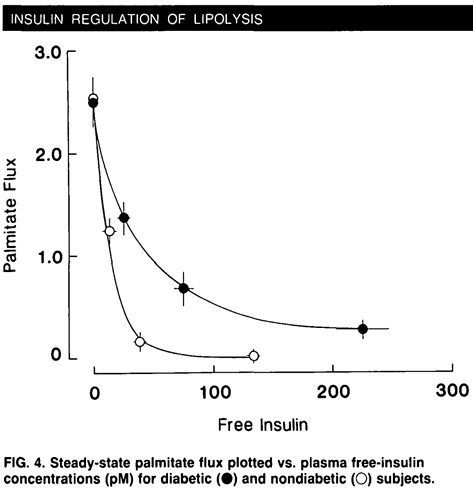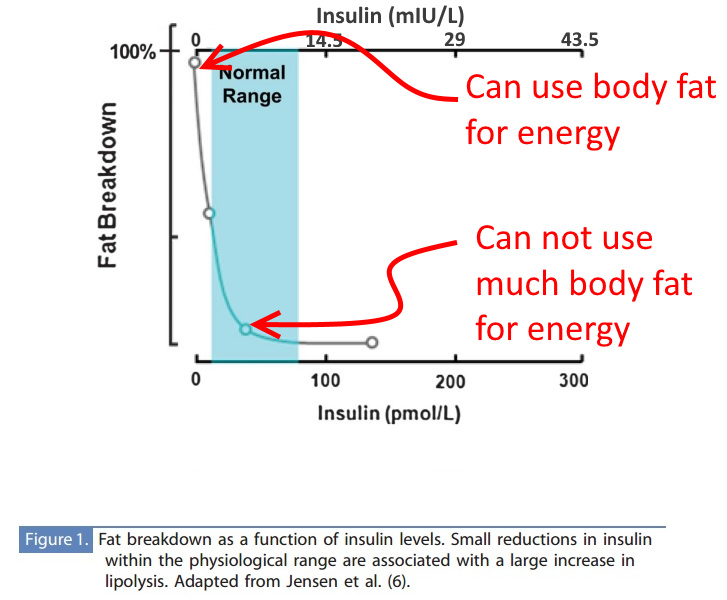Butter. Poor guy.
This week’s LLVLC episode with Mark Sisson
I think that’s 2015 Jimmy, not current Jimmy. I admire that he’s up front on a lot of things, but daily food journals are not something I ever see him post.
Yeah there was a lot more important things to find out - like are you stopping at satiety.
I listened to that podcast yesterday and think there is no doubt that M.S. was talking about CICO when suggesting that J.M. eat 1800 calories per day. He actually talked about there having to be a ‘deficit’ ~ “no other way to lose”.
I also thought I could hear eyes roll at the suggestion of employing CICO with te knowledge that JM has gone on very long fasts which could also be considered ‘calorie reduction’. I thought M.S. demonstrated a real lack of insite and understanding. It came down to the usual ~ ‘can’t seem to lose weight? You must be eating too much’. So old and tired and wrong. JMHO
Here are a few questions to keep the conversation going because I’m finding this very interesting and I don’t think we have all the answers yet:
-
If eating “fat to satiety” happens when a fat-adapted person eats around 800 calories a day is that person damaging their metabolism by not eating more?
-
If the body, when fat adapted, is just as content using your love handles for fuel as it would be with using consumed coconut oil then why does it not make sense that eating less coconut oil would result in the loss of more body fat?
-
If aspects of keto mimic fasting (lower insulin, stable blood glucose) then why are the protein sparing & metabolic rate maintenance benefits of fasting not also realized to some extent on keto? In other words: if fasting doesn’t damage/slow metabolism then how could a keto diet which mimics fasting lead to a decreased metabolic rate if ample calories aren’t consumed?
I have some ideas on these but I’d love some input before I chime in, these questions do not get asked from what I’ve seen. And if they do get asked I’ve never seen them answered to my satisfaction.
I’m assuming that since he knows that Jimmy understands keto and has done a lot of fasting, then it might be time to shift things on another front. Mark’s one of many out there who thinks that hormones trump calories (and in fact the word “calories” comes up very rarely in his writing, and then usually like it does on here, in reference to macro ratios) - but that all else being equal calories probably fit into the equation somewhere. But I didn’t hear the interview, so…[excuse me while go off to listen to the podcast so that I can know what I’m talking about on this thread]
Yes. Double yes. Triple yes. I’ve wondered the same thing here and mentioned it in the context of my head scratching about bulletproof coffee. Completely agree.
Yup. After all, macro ratios are kinda the point on keto.
Is Jimmy, by any chance, an emotional eater who hasn’t quite kicked the habit of self-soothing with food? I seem to recall him fan boy-ing comfort foods an awful lot in his repartee. It might explain why he clings to a higher daily food volume so much.
It would be edifying to hear him correlate the psychological highs and lows of his life with the scale and other health indicators. I’m not blaming him; no one knows better than I how the body can go battle stations and shift its chemistry wildly during stress. Chronic anxiety makes keto just delightful. (dripping with sarcasm)
I think it’s just all much more complicated and we’re searching for some universally-applicable formula that would apply to everyone (but it’s just not out there…).
This quote makes sense to me and I think it shows up as true for many people - but there are others out there who find that RAISING their fat intake speeds up weightloss even if gives them a total that seems too high to make mathematical sense.
Is that because there are degrees of fat adaptation? or that all of our bodies receive/respond to ample fat in the diet in different ways? (or have different fat-storage strategies and set points)? I think there’s so much argument about CICO not just because there’s both some truth to it (and also none at all if we’re not metabolically healthy) but also because the CO portion of the equation is so incredibly complicated and individual that you just can’t generalize.
I’m convinced there are a few factors science hasn’t quite embraced yet, very crucial factors. The biggest one is so crucial, yet so cost-prohibitively difficult to test in a multitude of ways, that I despair of it ever being ubiquitously acknowledged in my lifetime. That’s why I’ve engaged in a stream of n=1 experiments (with amazing results) for the last 20+ years, sans doctor.
Yeah, I’m talking about the mind. Not brain, mind. Its impact on human physical health is still widely regarded as witchcraft by the scientific canon, just like giving anesthetic to babies during surgery still was just 40 years ago. Yes, really.
To quote Max Planck: “Die Wahrheit triumphiert nie, ihre Gegner sterben nur aus.” The truth never triumphs, it’s opponents just die out.
I think this is true to a threshold. I’m sure many of you have read Richard’s blog post explaining how the body can only liberate so many calories from fat stores per day and that’s while fasting. Not sure if this is the same amount while eating regular keto meals(?) http://blog.2keto.com/why-fasting-is-easier-for-some-people/
I don’t disagree but bear with me here, assuming we can only get so much energy from a pound of body fat per day as Richard says (which I believe is likely true) then why would we not strive to only eat the difference between the energy we have on board and energy from outside sources? Why would a guy with 100+ extra lbs on board want to eat the same amount as a lean 155lb man?
My thought, one of them, is that it can be virtually impossible for some people to become fully fat adapted. We say things like “switching over to burning fat for fuel/making fat instead of glucose the body’s preferred fuel source” etc. If that were true then following a short stretch of excess carbs the body would immediately send us back into ketosis. For some people that happens, for others it can be days or weeks.
Losing weight early on in keto and then having weight loss come to grinding halt is very common. It’s the elephant in the keto room as far as I’m concerned.
I agree, it’s much more complicated. Much, much, much more complicated. We aren’t (I’m not) looking for any “universal” solutions, I’m looking for any solution whatsoever. I know it’s foolish to speculate on one person but Jimmy isn’t alone. And with his background I have to believe he’s tried a whole hell of a lot of different things to keep his progress moving forward. And until now he’s been unsuccessful. So unsuccessful that I heard him sound puzzled and frustrated on his own podcast which is something that doesn’t often happen from what I recall.
@Rian I don’t think the guy with 100+ pounds extra fat and the 150# guy would be eating the same amount if they are both eating to satiety. Also the first guy would have significantly more fat stores to draw from, but only IF he doesn’t have high insulin preventing access to said fat stores.
But i understand your point, I have the same questions and don’t have an answer. Maybe if people lose a certain amount of weight and become more insulin sensitive/ have lower baseline insulin levels, calorie reduction may be useful to break a stall (?) I’m sure many others will chime in with other thoughts and let me know if that idea is way off base.
it is clearly getting Jimmy down and he is looking for the solution. To go back up in weight after that weight loss he must be doing something negative to his body and I wonder - stress … he often mentions he hates travelling but does he get more stressed than most of us and we know what happens then
I agree whole heartedly with this comment. Something we can’t measure is inflammation. Sleep, stress, etc… What impact does this have. It’s not just about eating FFFAAATTTTT! {in my best Karl accent}.
And does stressing about a stall release more cortisol and make the stall even worse? It’s almost a self fulfilling prophecy for some people. I can imagine travel is a factor, both in regards to stress and in regards to accessing real food on the road. But who knows, maybe someday we’ll have the answers.
I’ll defer to Dr Stephen  here who said “Satiety is key”. If you are eating to satiety then you are letting your body determine it’s fueling requirements.
here who said “Satiety is key”. If you are eating to satiety then you are letting your body determine it’s fueling requirements.
It doesn’t matter if you are eating 800 kCal or 1800 kCal. Your body could have access to 2000 kCal from body fat, or it might have access to 1000 kCal depending on how much you have an whether it is insulin sensitive and what your fasted insulin is. You might be consuming 2000 kCal a day, or you might be using 3000 kCal a day depending on whether your peripheral cells have unfettered access to long chained fats (this is controlled by insulin) or glucose (also insulin). Your body might think it’s in a glut of energy and be spilling energy as heat to give your immune system an extra advantage, or your body might think it’s in a budgetary crisis and running your body temp lower and furloughing non essential tasks.
These are all gauges that are beneath our conscious awareness, but they are among the many thousands of factors that our bodies uses to determine satiety signalling.
In answer to your question, if a human is eating to satiety it is unlikely that they are damaging their metabolism. If they stop fueling before satiety then I suspect that those budgetary crisis options are on the table and that is where you start to cripple your metabolic rate.
See that is the most critical piece of context that most people talking about calories in calories out, or the fat leverage hypothesis of ketogenic diets are misunderstanding.
If the body is just as content using … body fat for fuel
3 factors determine whether the body is equally content using body fat for energy as it is using coconut oil.
- If you don’t have a lot of body fat, the maximum rate that you can access stored energy is 31.5 kCal/day/lb of body fat. So if you have just 10lbs of body fat you can draw down roughly 315 kCal/day and after that you need to find your daily energy elsewhere. If you have 50lbs of body fat then you can draw down 1575 kCal/day.
- If your body fat is insulin sensitive (healthy) and insulin is high then your body fat won’t release any energy from storage and will be actively drawing more energy from circulation.
I’ve only recently found this data which shows the difference in insulin inhibition of lipolysis between insulin sensitove and insulin resistant adipose tissue.

If your body fat is insulin resistant then you will be able to get about 20% of your maximum possible rate of energy from body fat - so if insulin is over 120 pmol/l (20 mIU/l) then that is more like around 6 kCal/day/lb of body fat. - Finally high insulin causes excess energy in your mitochondria to be diverted into making fat instead of making ketones (this is why type 1 diabetics can see runaway ketoacidosis because they can’t make insulin to stop the process). In that process the mitochondria protects itself against re-burning that fat by turning off the mechanism that long chained fats get into the mitochondria. So in that circumstance (high insulin) body fat, which is mostly long chained fatty acids is not burned and exported to be stored. BUT (and here is why I’m glad you mentioned coconut oil) Medium and short chained fatty acids are still shuttled into the mitochondria.
So in either of those 2 contexts (low body fat, or high insulin) your body will have a limit of how much of your love handles it can burn, and then it will be needing some coconut oil. Again Dr Stephen  has the key phrase “Satiety is key” it will tell you when it needs more energy than it can get from storage and if you don’t give it that energy, it will find it elsewhere (protein) and make budgetary cuts to balance it’s books.
has the key phrase “Satiety is key” it will tell you when it needs more energy than it can get from storage and if you don’t give it that energy, it will find it elsewhere (protein) and make budgetary cuts to balance it’s books.
I suspect a ketogenic diet probably looks “like fasting” to people pushing balanced, or carbohydrate centered diets. It’s not really fasting. Fasting lowers insulin more than keto, even a hypo-caloric ketogenic diet. A fast is not sustainable and your body knows that, but a moderately hypo-caloric diet is if your body maybe makes a few cost savings and burns a little of the furniture. The body adapts to zero fuel by a raft of short term changes to improve your ability to hunt down more food. The body adapts to inadequate fuel by making cost savings until normal services can be resumed. A long term fast eventually must lower metabolic rate, and I’m not sure where the cutover is (I would guess in the order of days) but it would be a good question to ask Jason Fung.
That chart above explains exactly why this happens.
When you are obese and start a ketogenic diet your body fat is insulin resistant. You are the black dots. See? Even when your insulin is up over 240 pmol/l (40 mIU/l) you still see free fatty acids from body fat (circulating palmitate) at roughly 20% of the maximum.
When you draw down enough energy from body fat, let’s say you drop like 80lbs like a couple of podcasters I know … then your adipose tissue becomes more able to respond to insulin. You become a white dot. NOW look at how much body fat you have access to at 240 pmol/l (40 mIU/l) … Zero. Even if your insulin drops to 60 pmol/l (10 mIU/l) you still have access to virtually Zero.
And now the chart looks like this one which you’ve probably seen me use a lot.
But if your insulin can drop to below 24 pmol/l (4 mIU/l) now you have access to 50% of your maximum rate of energy from body fat. And if you are one of the lucky ones who can get their insulin below 12 pmol/l (2 mIU/l) the energy is freely flowing from your adipose tissue and I suspect you have trouble keeping above 10% body fat.
So the real elephant in the room is how do you lower insulin?
The answer as far as I’ve been able to find is to reduce insulin stimulation (carbs/protein), increase insulin clearance (HIIT, build functional muscle and use it), remain at a lower insulin state long enough to bend the needle (ie: keep calm and keto on).

